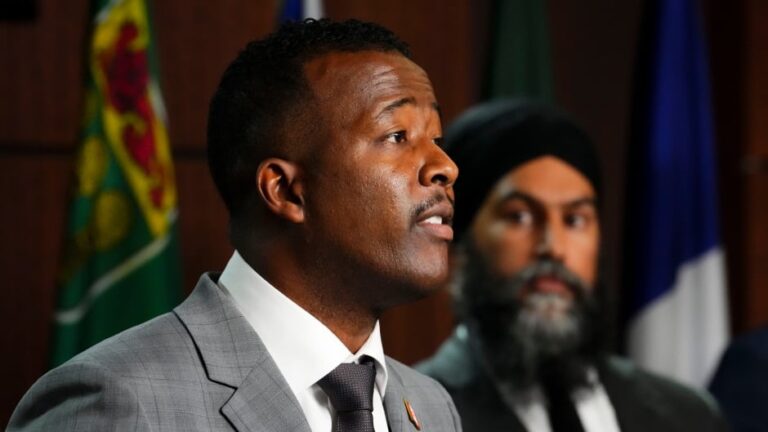Understanding Cancel Culture: Its Meaning and Impact Today
Cancel Culture: The Good, The Bad, and The Impact
In today’s digital age, there’s been a lot of buzz around the term “cancel culture.” You’ve probably heard it thrown around on social media, in the news, or even during a heated conversation with friends. But what exactly does it mean, and why does it matter? Let’s dive deep into understanding cancel culture, its implications, and the conversations surrounding it.
What is Cancel Culture?
So, you might be wondering, what’s the deal with cancel culture? In its simplest form, cancel culture refers to the phenomenon of withdrawing support for public figures or companies after they’ve done or said something considered objectionable, typically amplified by social media. Imagine you’re at a party, and someone makes a rude comment. The room goes silent, and soon, everyone is quietly distancing themselves from that person. That’s cancel culture in a nutshell!
But here’s where it gets a bit murky. The reasons behind “canceling” someone can be varied, from problematic comments and actions to shady business practices. Some argue it’s a tool for social justice, while others see it as something more harmful.
The Evolution of Cancel Culture
To trace the roots of cancel culture, let’s take a quick trip down memory lane. It’s not a new concept; the idea of holding people accountable has existed for ages. However, with the rise of social media platforms like Twitter, Facebook, and Instagram, the speed and reach of these movements have taken accountability to a whole new level.
From “Shaming” to “Canceling”
In the early 2010s, social media was buzzing with debates around public shaming. Twitter was flooded with hashtags aimed at calling out celebrities or brands. For instance, remember when that one celebrity tweeted something problematic, and suddenly everyone was retweeting it with comments and backlash? That was the birth of online shaming.
But as time went on, the stakes became higher. People began “canceling” those who they felt had crossed a line. This was often perceived as a stronger form of accountability. It wasn’t just about shaming but rather about completely withdrawing support from an individual or entity deemed undeserving of it.
The Good, The Bad, and The Ugly of Cancel Culture
Now, let’s break it down. Like any coin, cancel culture has two sides. On one hand, it can be a tool for social change, but on the other, it can also lead to unintended consequences.
The Positives of Cancel Culture
-
Accountability: One of the shining aspects of cancel culture is the accountability it brings. For far too long, public figures have gotten away with inappropriate behavior without facing consequences. If someone has said something offensive or harmful, the rise of cancel culture can force them to reckon with their actions.
-
Empowerment: For marginalized communities, cancel culture can serve as an empowering vehicle. It allows voices that have traditionally been silenced to be heard. Suddenly, the power dynamic shifts, and those in positions of authority must consider the impact of their words and actions.
-
Awareness: Cancel culture can create awareness around social issues. When people rally against a problematic statement or action, it opens up a broader dialogue about these topics. It can lead to further education, understanding, and, ideally, change.
The Negatives of Cancel Culture
-
Lack of Nuance: One of the major criticisms of cancel culture is its tendency to lack nuance. Not everything is black and white. Sometimes, human behavior is complex and layered—but cancel culture often oversimplifies these situations.
-
Mob Mentality: Remember that party metaphor I used earlier? Now imagine that instead of simply distancing from the rude person, everyone starts heckling them, making nasty comments online, and sharing their private information. Mob mentality can create a toxic environment where individuals are attacked, sometimes without context or the chance for redemption.
-
Fear of Consequences: Some argue that with the rise of cancel culture, individuals are becoming increasingly fearful of expressing their thoughts—or worse, they may self-censor. People hesitate to share their opinions for fear of backlash, stifling open dialogue and complex discussions.
The Psychological Impact of Cancel Culture
Now, let’s switch gears and consider the psychological aspect. Just like that rude partygoer who could feel the disdain in the room, being “canceled” can lead to anxiety, depression, and a sense of isolation.
Imagine waking up to find everyone unfollowing you, and your mentions flooded with insults. That’s a harsh reality for many who have been canceled. The emotional toll can be significant, from feeling invalidated as a human to facing public humiliation.
Redemptive Conversations
However, it’s not all doom and gloom. Many are starting to advocate for a more restorative approach rather than outright cancellation. This could involve discussions about behavior, learning from mistakes, and moving forward. Redemption is more than just a buzzword; it’s a critical part of growth!
Navigating the Waters of Cancel Culture
So, as a society, how do we navigate this complex landscape? Here are some thoughts:
-
Engage in Dialogue: Have conversations rather than jumping to conclusions. Listening can go a long way in understanding different perspectives.
-
Promote Education: Instead of “canceling,” promote awareness and education. Encourage individuals to learn from their mistakes rather than simply punishing them.
-
Foster Empathy: Try to see things from the perspective of others. Empathy can help bridge divides and foster understanding instead of division.
- Support Better Practices: Companies and influencers should work towards transparency and take accountability for their actions without fear of retribution.
Conclusion
In a world where social media amplifies every voice, the concept of cancel culture is likely here to stay. It presents both challenges and opportunities, and as we navigate these complex waters, the focus should be on accountability, understanding, and growth. So, next time you hear the phrase “cancel culture,” think about what it signifies and how we might choose to engage with it.
Whether you see cancel culture as positive or negative, it has sparked essential conversations about accountability, justice, and the impact of our voices in an interconnected world. After all, change often begins with a single conversation, doesn’t it?
FAQs
1. What are some examples of cancel culture?
Examples include celebrities being called out for past remarks or actions, brands boycotted due to unethical practices, or public figures facing backlash for controversial statements.
2. Is cancel culture always harmful?
Not necessarily. While it can have negative consequences, it can also lead to accountability and awareness of social issues.
3. Can someone come back from being canceled?
Yes! Some individuals choose to engage, apologize, and learn from their mistakes, successfully re-establishing their presence.
4. How can individuals avoid being canceled?
Being mindful of the impacts of words and actions, fostering open communication, and continuously educating oneself can help mitigate the risk of cancellation.
5. What is the difference between cancel culture and accountability?
Cancel culture often involves public shaming and withdrawal of support, while accountability focuses on recognizing and addressing harmful actions constructively.







